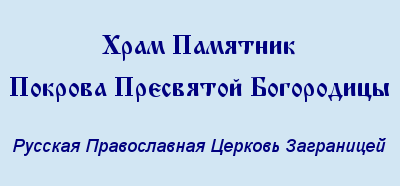Dear Brothers and Sisters,
Congratulations with the feast of the Resurrection of the Lord!
Today let’s continue our review of the seven Ecumenical Councils and briefly discuss the
Second Council.
It seemed that the First Ecumenical Council had decisively resolved the theological questions concerning the Holy Trinity and the relationship between God the Father and the Word of God, but this was not so. The dispute between the Orthodox and the Arians (heretics who did not believe that the Son of God was consubstantial with or of the same essence as God the Father) continued for another half a century. In those same years, semi-Arians appeared, people who proposed theological teachings that tried to find a middle ground between the Orthodox and the Arians. Among them was the teaching of a certain Bishop Macedonius that the Holy Spirit was not consubstantial with God the Father and the Son, another attack on the Holy Trinity, only this time not on the Son, but on the Holy Spirit.
During those years (between the 1st and 2nd councils, from 325 to 381) Athanasius the Great, and, a little later, the Cappadocian fathers – Basil the Great, his brother Gregory of Nyssa, and his friend Gregory the Theologian – worked tirelessly to defend the Orthodox faith. These three fathers in their written works clearly and thoroughly laid out the teaching of the Church on the Holy Trinity. Despite the decisions made at the First Ecumenical Council and the works of these fathers, the Arians did not disappear, but gained in strength. Often they were assisted by the secular authorities, who actively replaced Orthodox bishops with Arians. Thus it seemed that the Orthodox had lost and the Arians should have completely seized control of the Church.
This situation changed drastically when the new emperor, St. Theodosius the Great, came to the throne of the Eastern Roman Empire. He was a pious Christian who, in contrast to his predecessors, supported the Orthodox and not the Arians. In 381 he called a council of bishops to meet in Constantinople. It was attended by 150 hierarchs, amongst whom were many saints including Gregory the Theologian, Amphilochius of Iconium, and the brothers of Basil the Great, Peter of Sebaste and Gregory of Nyssa. For a short while, Gregory the Theologian presided at the council, but when some began to deny him the right to be the bishop of Constantinople, he of his own free will renounced his episcopal see, retired from participation in the council, and withdrew to his own country, where he spent the remaining days of his life. This relatively small, but nonetheless ecumenical council ratified those decisions accepted at the First Council and condemned various semi-Arian teachings, such as the teaching that the Holy Spirit is not of the same essence as God the Father and God the Son. The fathers of this council authorized the "Nicaean-Constantinopolitan" Symbol of Faith or Creed, which each one of us reads daily during morning prayers and which we all sing together at every Divine Liturgy. In this Symbol of Faith the teaching of the Church regarding the Holy Trinity is clearly revealed. After this council, the Arians no longer troubled the Eastern Church.
As is the case with the First Ecumenical Council, this second council is important because it defended the Orthodox teaching on the Holy Trinity – that the Son and the Holy Spirit are consubstantial with the Father. Since Jesus Christ is truly God, we people have the most solid Intercessor between us and God the Father. Since the Holy Spirit is truly God, in essence the same as the Father and the Son, it is God, and not some created divine power, that is always found amongst us. This council is also important because we clearly see the working of the providence of God. It seemed that the Orthodox faith should have disappeared in the eastern part of the Roman Empire, but everything changed in an instant. The heretical emperor unexpectedly died at war, the new emperor turned out to be Orthodox, and the new council firmly established the Orthodox faith. Truly, “God is not mocked” (Gal. 6: 7). Thirdly, let’s focus our attention on the wonderful meekness of Gregory the Theologian who, for the sake of peace in the Church, was ready to abandon his bishopric, as well as his right to participate in the council.
Let us also not forget these lessons in our own lives. When it is difficult for us, let’s remember that the Lord God is close at hand, that He is truly amongst us. When we see that we are surrounded by injustice, when it seems that there is no hope that the Christian faith and an upright manner of life will be preserved in our contemporary world, when we lose hope that there will ever be peace among Orthodox nations, let’s not fall in spirit, but instead remember with what speed and suddenness everything changed for the better at the end of the 4th century. Let’s also not forget the power of meekness to heal all manner of disorder, be it at church, at work, or in our families.
priest Alexis







